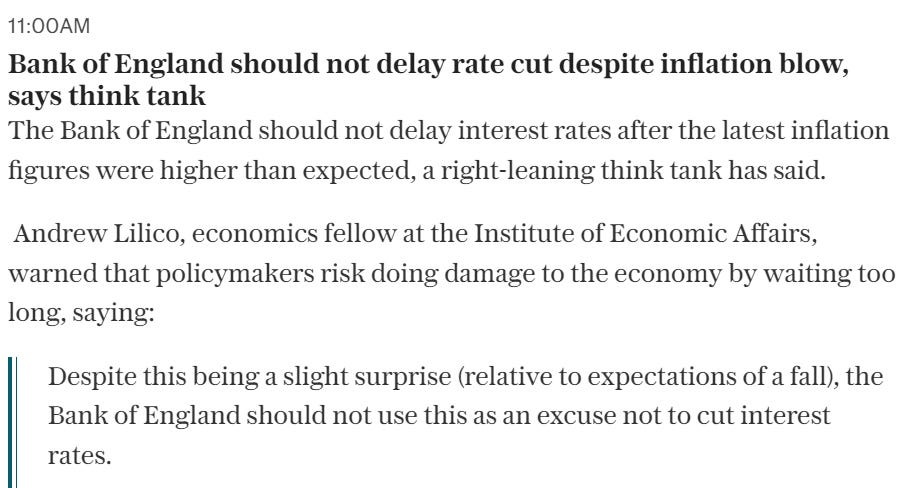King's Speech sends mixed messages on growth
Pro-growth planning reforms risk being dragged down by red tape
The sheer size and spectacle of the King’s Speech should be enough to humble any politician. After the fanfare of the campaign and the ecstasy of election, Parliament opens by reminding MPs of the seriousness of their work. Immediately, they are made palpably aware of their connection to centuries of constitutional tradition as the agenda of the upcoming session is announced to them by none other than His Majesty the King.
But recent years have not seen King’s Speeches live up to the occasion. The past decade plus of Westminster politics has been defined by a refusal to tackle the biggest challenges facing our economy – chief among them planning laws. Britain’s absurdly burdensome system has not only caused high house prices and rents but also a whole host of secondary effects dragging Britain’s economy down, from suppressed worker productivity and higher energy bills, to lower social mobility and higher carbon emissions.
But we may look back on this week’s King’s Speech as a significant turning point. After loosening planning restrictions on the building of solar panels and onshore wind farms last week, the Labour Party is making good on its promise to liberalise planning laws on house building and for crucial national infrastructure.
Proposals to free up ‘Greybelt’ land for development and make it tougher for local NIMBYs to block new developments are most welcome, as are plans to designate more projects as ‘Nationally Significant Infrastructure Projects’ in order to circumvent local governments altogether. The devil will be in the detail on this and the government has a long way to go, but this was a major step.
But the news wasn’t all positive. Almost 40 other measures were announced in the King’s Speech, many of which threaten to tangle the economy in even more red tape and government meddling. As our Chief Operating Officer Andy Mayer explained in City AM this week, the ban on new North Sea Oil and Gas drilling will merely make us poorer and less secure. The government cannot change the reality that Britain will continue to be reliant on fossil fuels for many years to come.
UK businesses and workers seem set to be hit with a raft of new employment regulations. Our flexible and dynamic dynamic labour market is one of the shining successes of our economy, allowing us greater innovation and lower structural unemployment than most of our European neighbours. Each new mandate erodes that competitive edge.
The state looks set to take a much more active role in planning crucial sectors like energy and railways. ‘Mission-led government’ (the new term for old fashioned industrial strategy) is certainly en vogue but it still suffers the same old problems. Central planners lack the knowledge or incentives to direct resources better than competing market actors. The government forgets this age-old lesson at its peril.
To add to all this, the new government is set to plough on with the ill-conceived generational tobacco ban, whilst cracking down on vaping, the most effective means we have yet discovered to safely quit smoking.
The King’s Speech may have heralded a breakthrough on planning reform. But the government should be wary of undermining the consequent growth with stultifying and counterproductive regulations.
Harrison Griffiths
Communications Manager
As a new political era dawns, the IEA’s work could not be more important. The best way to support our vital research and educational programmes is to become a paid IEA Insider. For a limited time, new paid subscribers will receive a copy of Steve Davies’ new book Apocalypse Next: The Economics of Global Catastrophic Risks) and a 15% discount:
King’s Speech: Pro-growth reforms risk being dragged down by red tape
After more than 35 new proposals were outlined in this week’s King’s Speech, Executive Director Tom Clougherty welcomed the government’s pro-growth planning reform commitment. But he warned that new environmental, employment, and transport interventions risk blunting the benefits.
The comment was covered in ITV News, The Daily Mirror, This Is Money, Guido Fawkes, The Intermediary, and The Scotsman, among others.
Director of Public Policy & Communications Matthew Lesh warned about the government’s extensive and uncosted regulatory plans in The Spectator and City AM
One of the landmark measures announced was the revival of the previous government’s plan for a generational smoking ban and a crackdown on disposable vapes. Head of Lifestyle Economics Christopher Snowdon criticised the proposals in The Daily Mail and stressed the importance of allowing smokers maximum choice for safer nicotine products in The Critic.
On this week’s IEA Podcast, Matthew Lesh, Andy Mayer, and Harrison Griffiths discuss the King’s speech in more detail.
News, Views & Upcoming Events
Bank of England should not delay rate cut despite inflation blow, says think tank, Economics Fellow Andrew Lilico quoted in the Daily Telegraph
The NHS Cult: Is Our Health System Really Worth Worshipping? | IEA Explainer, Editorial Director Kristian Niemietz, IEA YouTube
Banning North Sea oil will only benefit Saudi Arabia, Andy Mayer, City AM
Is it right to make electric car drivers pay road tax?, Managing Editor Daniel Freeman, The Times
How Hayek’s “Road to Serfdom” became relevant again
IEA staff visited Buckingham this week for the Vinson Centre’s Conference in the Classical Liberal tradition. Kristian Niemietz gave a talk on how F.A. Hayek’s Road to Serfdom became relevant again which you can read on the IEA Blog.
Sixth Form Future Thought Leaders' Programme
Over the last two weeks, the IEA welcomed 70 students to its Westminster office for this year's Future Thought Leaders' Programme. The best and brightest young minds from across the U.K. participated in a series of seminars on pressing policy debates, and workshops on career opportunities in economics and finance.








